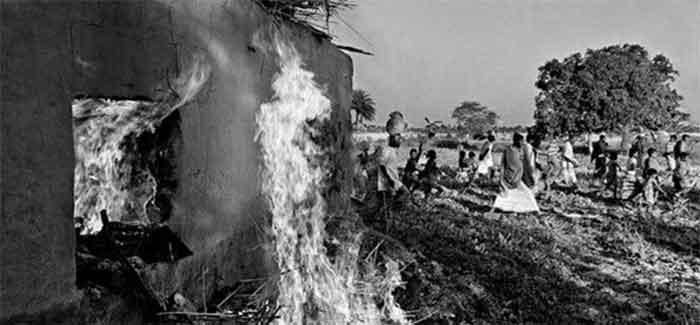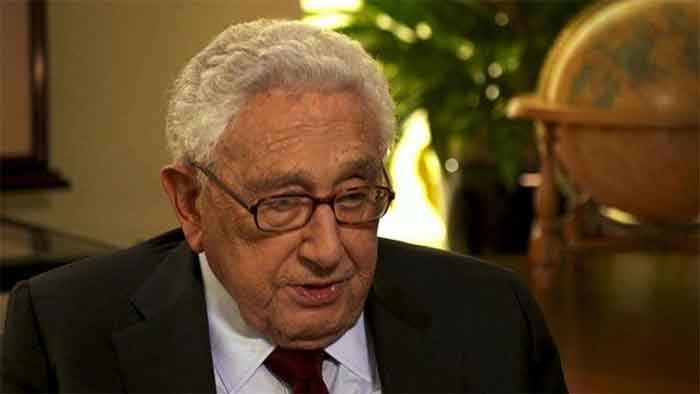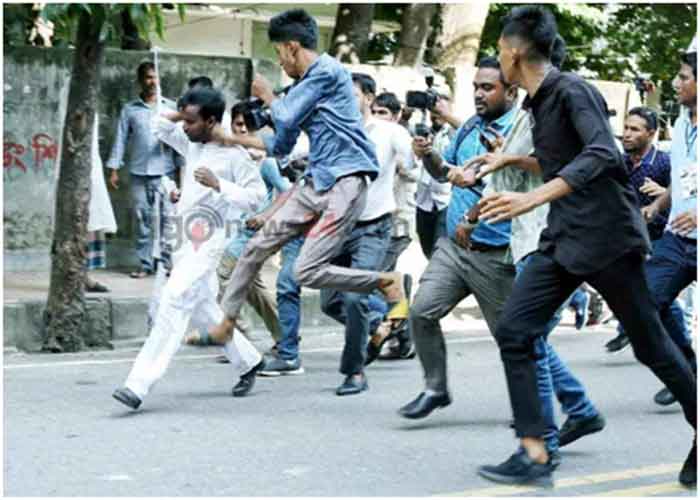
Whenever it is recognized that foreign policy distortions of one or more superpowers have led to serious human rights violations and humanitarian crisis in developing countries, the focus has been on studying how the people in developing countries suffered. This is as it should be , as this is clearly the most important issue.
However from the point of view of more complete understanding of the folly by people and policy-makers in superpower countries, it is important also to study the other aspect of how even the crucial interests, particularly the longer-term interests of the superpowers involved are also harmed in the process.
This may be explained here in the context of the policies pursued by the USA towards Bangladesh during the crucial year of 1971 . This was a very important year in the history of the people of Bangladesh, perhaps the most important year.
As is well-known Bangladesh was earlier the Eastern part of Pakistan and remained so till 1971, suffering a lot of discriminations and injustices. However when the right to form a government was denied to the Awami League political party led by a very popular leader Sheikh Mujibur Rehman after its very convincing electoral victory, the simmering discontent and smaller rebellions erupted in more or less a call for complete independence of ( now openly declared) Bangladesh by Mujibur.
He was arrested by the Yahya Khan led Pakistani regime , and genocidal killings and tortures of people of Bangladesh ensued , as confirmed by senior local US diplomats stationed in Bangladesh.
The question is—what were the options before foreign policy makers in Washington and what was the choice they made?
Clearly for proper policy they needed confirmed facts. Their regional diplomats hastened to provide them the factual position that the repression and atrocities were indeed of genocidal proportions. They were right. In fact by the end of the year the highly disturbing toll would amount to around 2.5 million persons killed, nearly 300 thousand women raped , nearly 10 million people displaced as refugees.
Both the US consul-general in Dhaka and the US Ambassador in India , senior and accomplished diplomats, men of standing and principles, provided the right information and sound advice at an early stage. The advice was not to support the perpetrators of the genocide. Given this advice and information and this critical situation, how would Nixon guided by Kissinger exercise his options?
In Washington Kissinger as National Security Adviser enjoying very close confidence of President Nixon led the decision-making. The options were clear. He and his President were on very friendly terms with Yahya Khan who had served as a link in renewing contacts with China. So the first option was to use their good relations with Yahya Khan to stop the genocide. The second option was to give ‘good friend’ Yahya Khan the go-ahead to do what he wanted, which in practical terms meant giving the go-ahead to go on killing innocent people. The Nixon-Kissinger duo consciously selected the second option, completely against the advice of their diplomats in Dhaka and India.
Opting for the second option led to the further killing of over 2 million people and the uprooting of over 8 million by the end of the year. Now let us see what opting for the first option would have meant.
As Nixon and Kissinger, with perhaps a little extra pressure , were clearly in a position to influence Yahya Khan, what they could have and should have done was to help broker a deal with Mujibur which could have resolved the crisis at a very early stage. Remember that in the early days of the repression being unleashed, Mujibur as a prisoner was in a very weak position and so were his colleagues back home who had come under heavy pressure due to the enormity of the repression unleashed. So an early intervention by so powerful and influential a mediator as the USA, particularly if it led to respect of recent electoral verdict, would have been accepted by Mujibur Rehman and his colleagues. Hence the crisis would have been resolved by around May 1971 or so and hence all the killings, rapes and displacements which took place after this could have been avoided, providing also for the safe return of those who had been forced already to escape to India as refugees.
This would have been accepted as a win-win situation ( in those early days and circumstances existing then) by all concerned. Pakistan would have benefited by avoiding its great split of losing the greater part of its population to secession. The people of Bangladesh would have escaped further repression while at the same time having a government led by their leader in Pakistan which would have surely acted to check discrimination and injustices inflicted earlier on them by less caring rulers. India would have benefited by avoiding the enormous pressure of refugees. The USA would have benefited by gaining the goodwill of all sides and earning worldwide praise for bringing peace to a highly violent region. Unfortunately this was not to be as this option which was clearly available was rejected by Kissinger and Nixon. And this is the reason why the genocide went on till December and was only stopped after Pakistan was comprehensively defeated in the resulting India-Pak war.
Now from the point of view of the USA it is clear that Kissinger-led policy lost a great opportunity to earn the goodwill of the democratic leaders as well as the people of South Asia as US foreign policy-makers rejected the option of bringing benefits to all and selected the option which inflicted great suffering . This has remained as a permanent blot on the foreign policy of the USA which could have been easily avoided.
Durable foreign policy impacts are seen not only in terms of impacts on governments but also people. The overwhelming majority of people in South Asia saw the Kissinger policy on Bangladesh in 1971 as a complete disaster and 100 per cent at variance with the stated US policy goals of protecting democracy and human rights. India has many supporters and admirers of the USA but they just could not find any justification for its policy. As the most important country of this region, India was known as a leading non-aligned country, but the USA pursued policy options which more or less pushed India towards a special friendship treaty with the Soviet Union. Hence clearly the USA’s foreign policy interests suffered durable harm and disrepute as a result of the clearly wrong options chosen by Kissinger against the advice of his regional senior diplomats. Similar conclusions emerge from other policy choices under Kissinger.
Bharat Dogra is a journalist and author. His recent books include Planet in Peril and Protecting Earth for Children.
GET COUNTERCURRENTS DAILY NEWSLETTER STRAIGHT TO YOUR INBOX















































